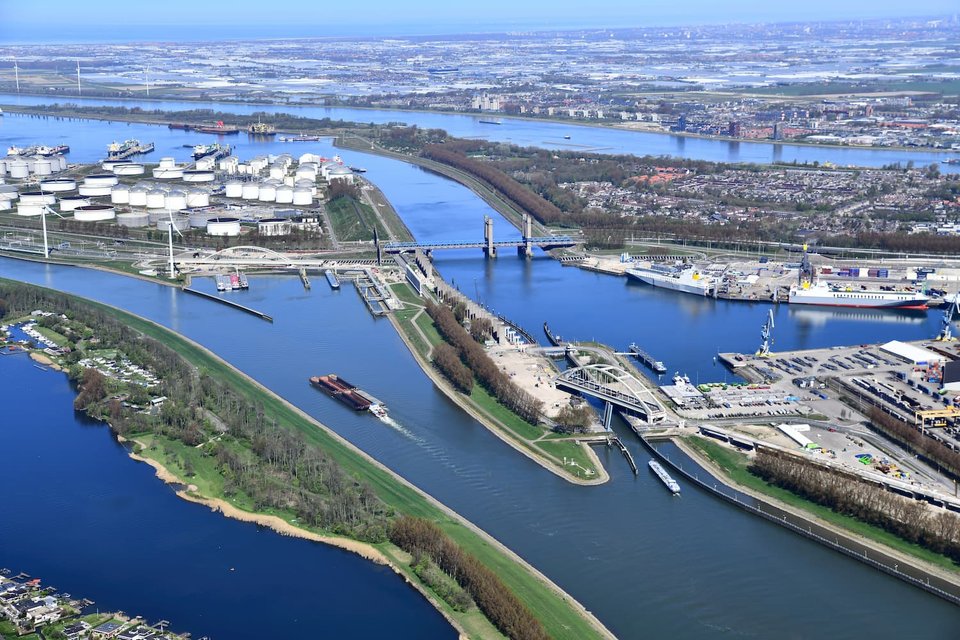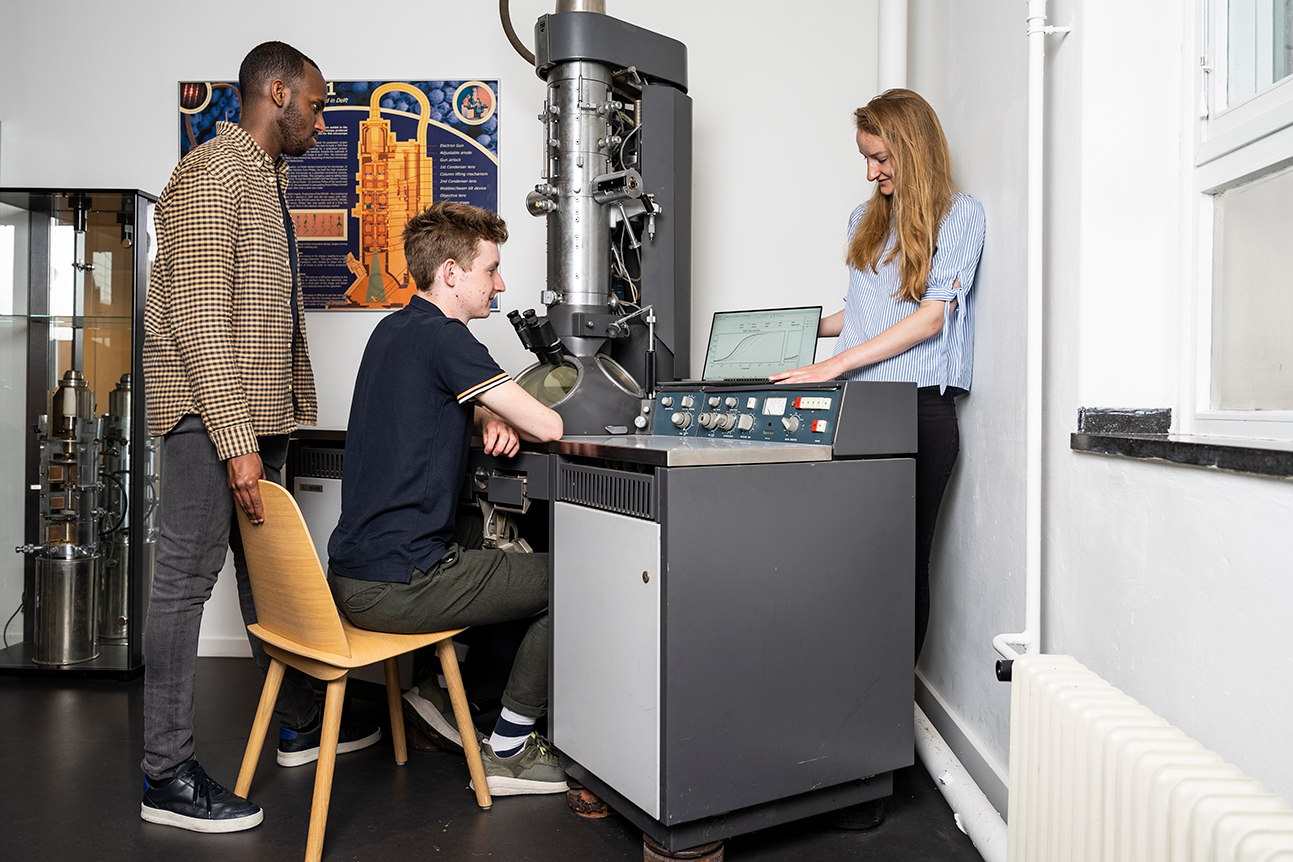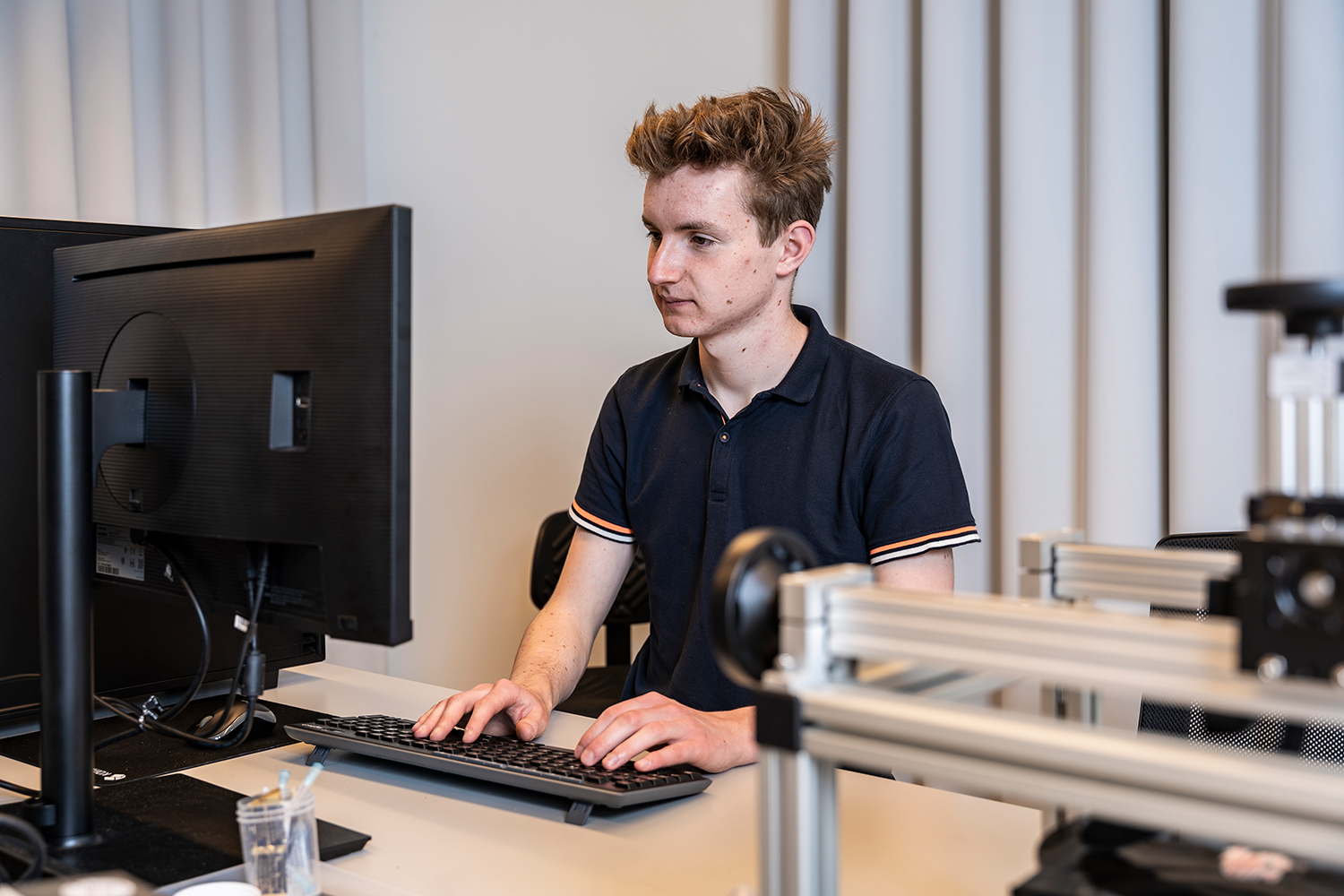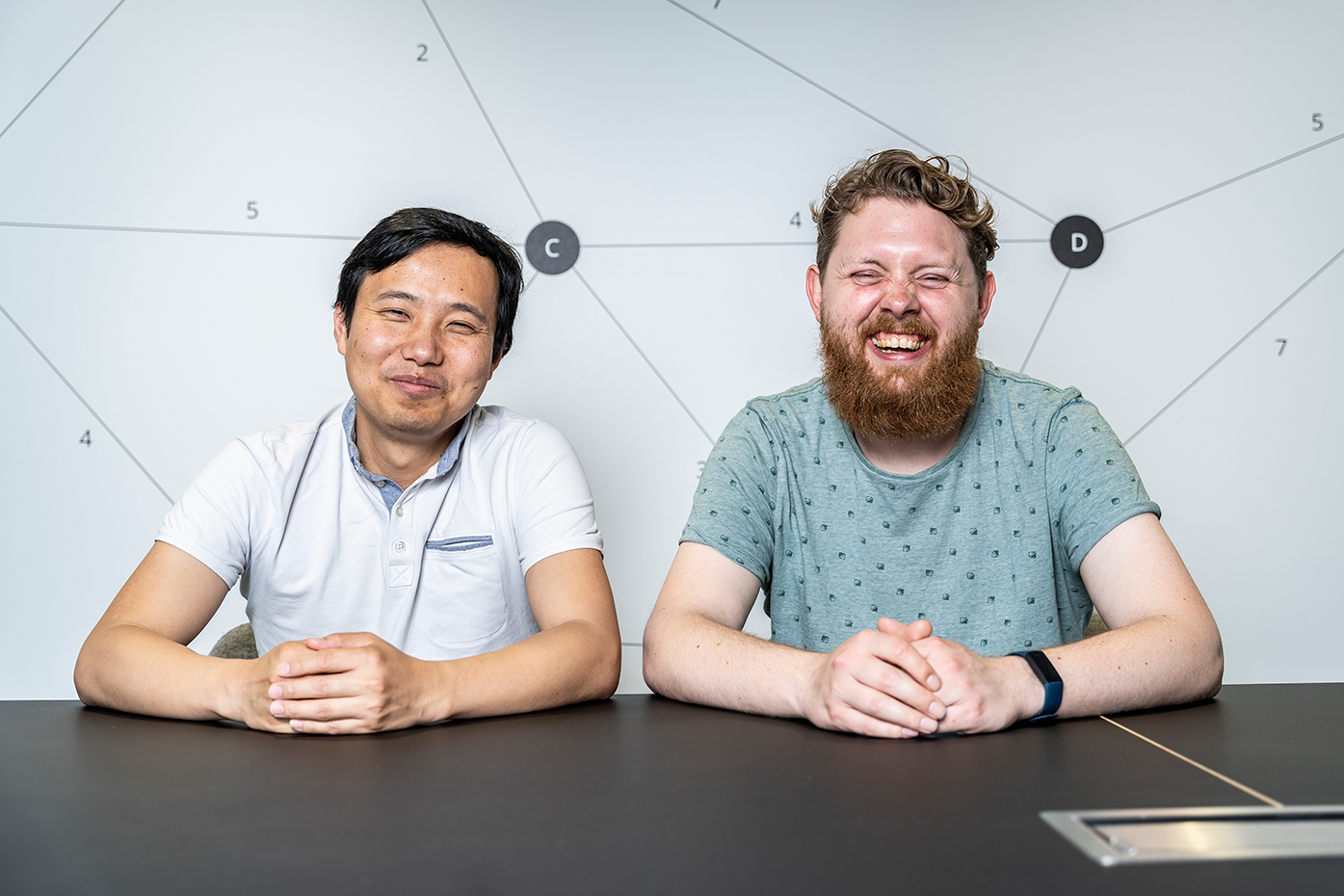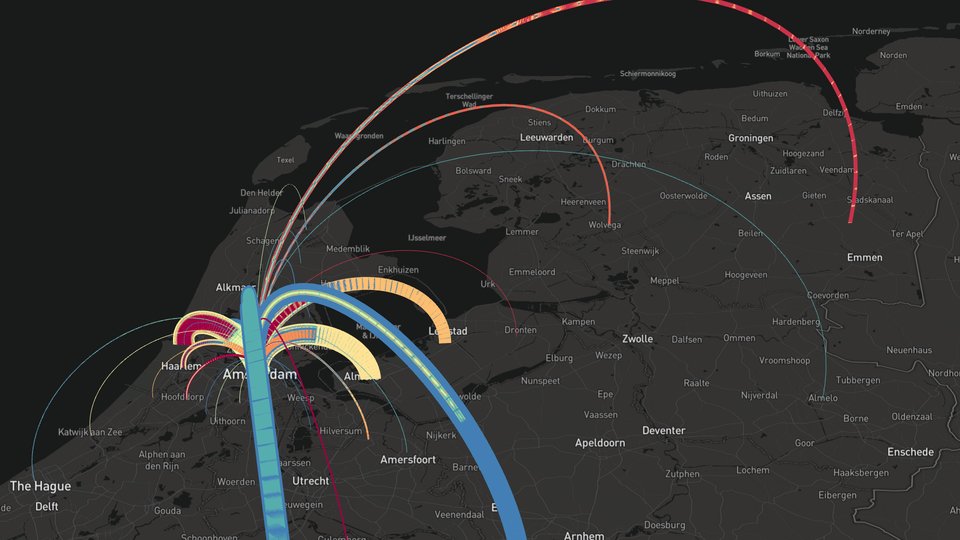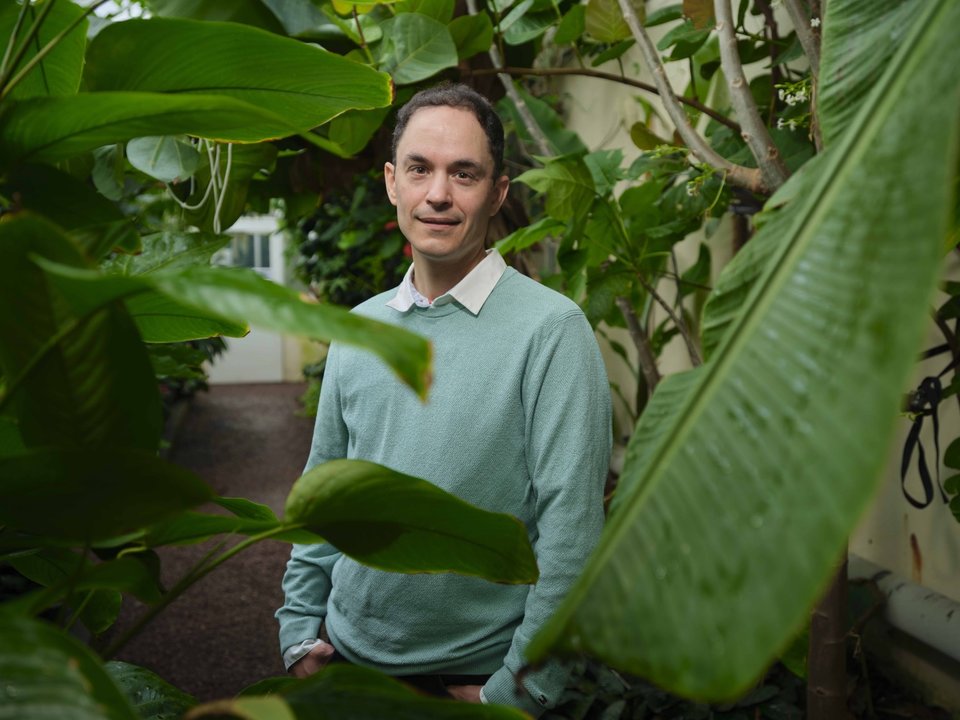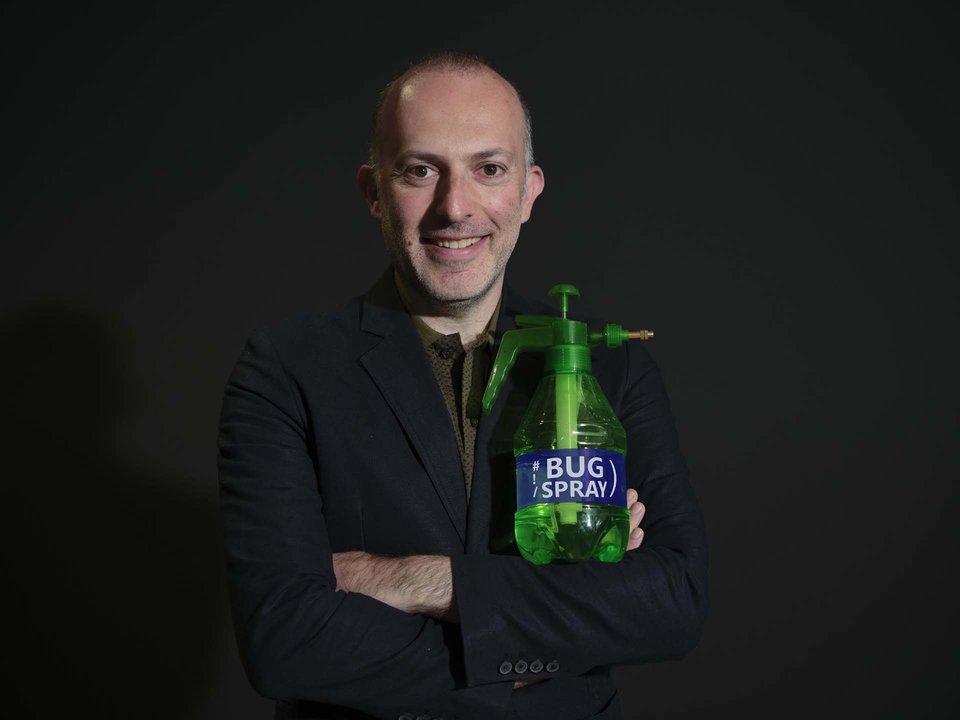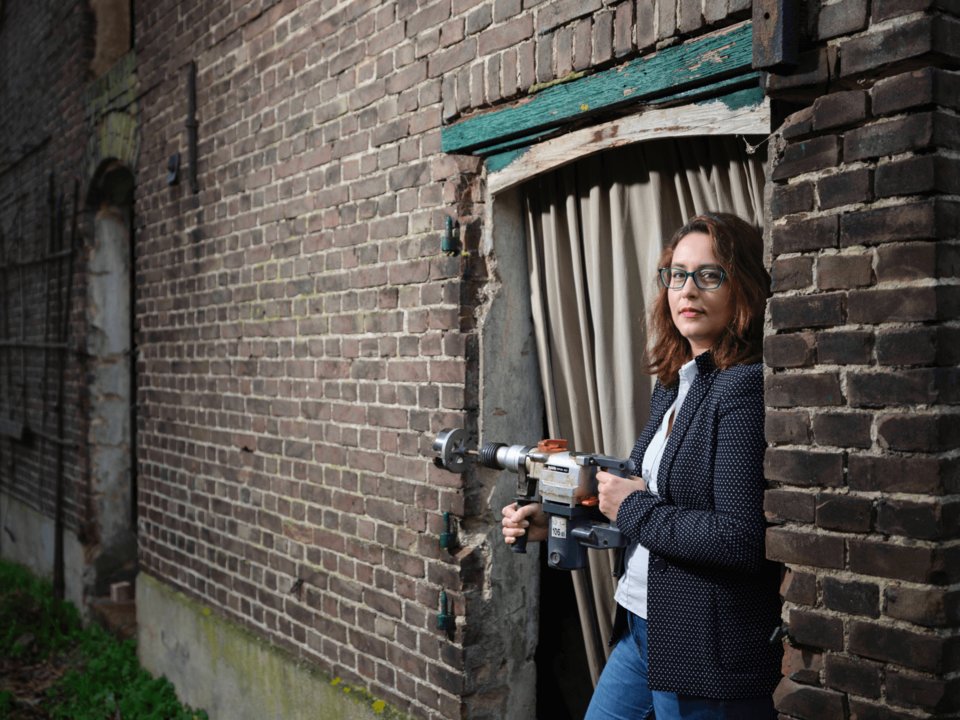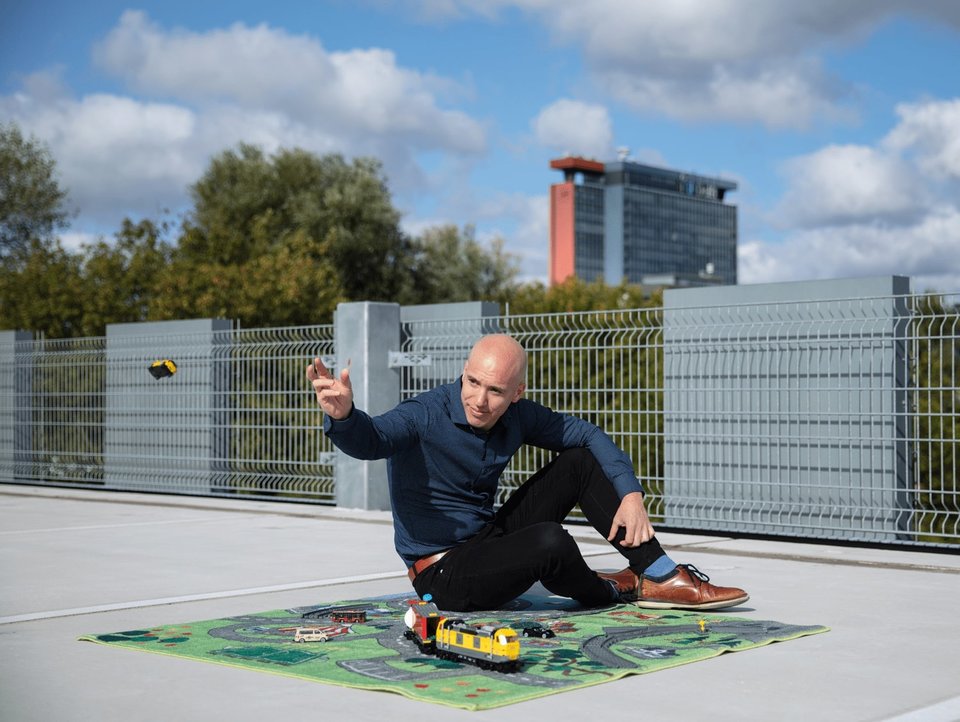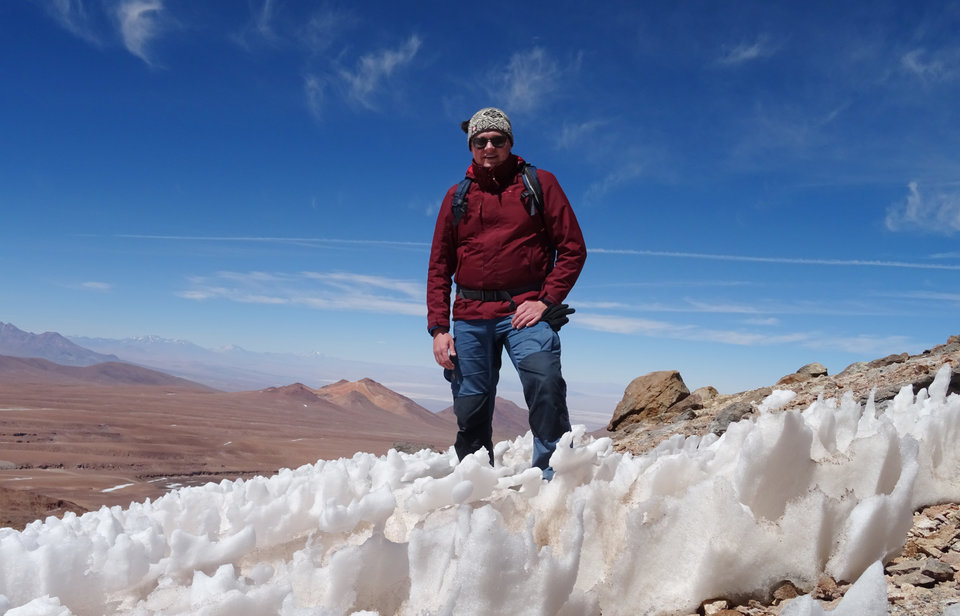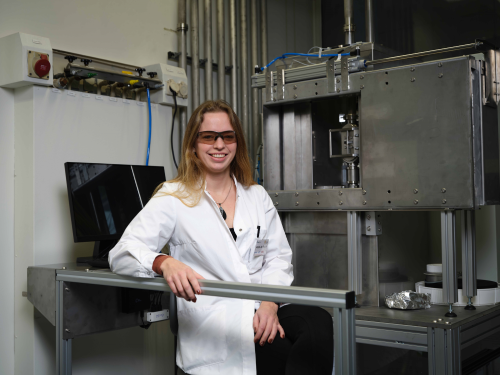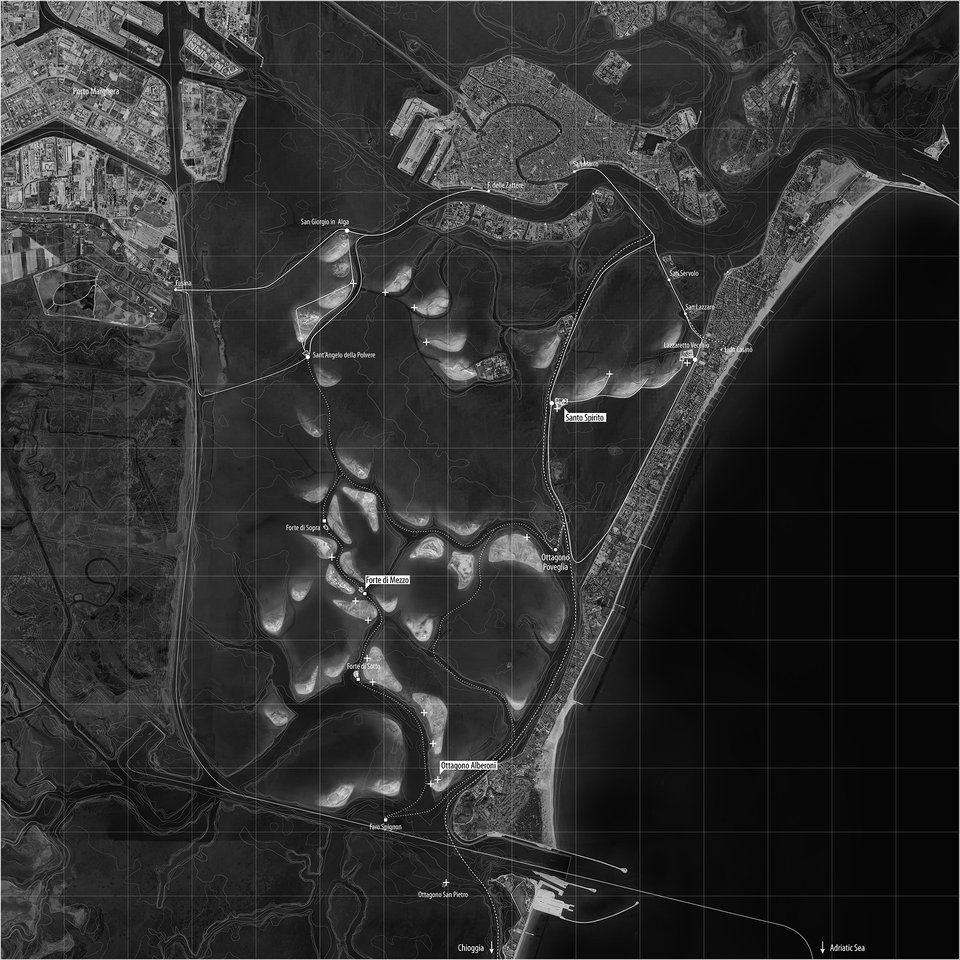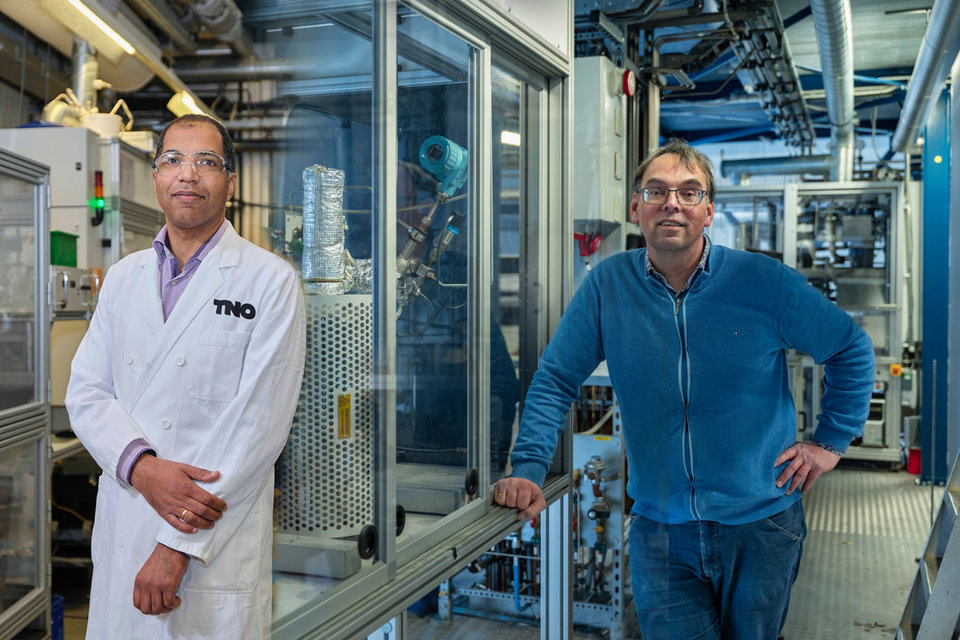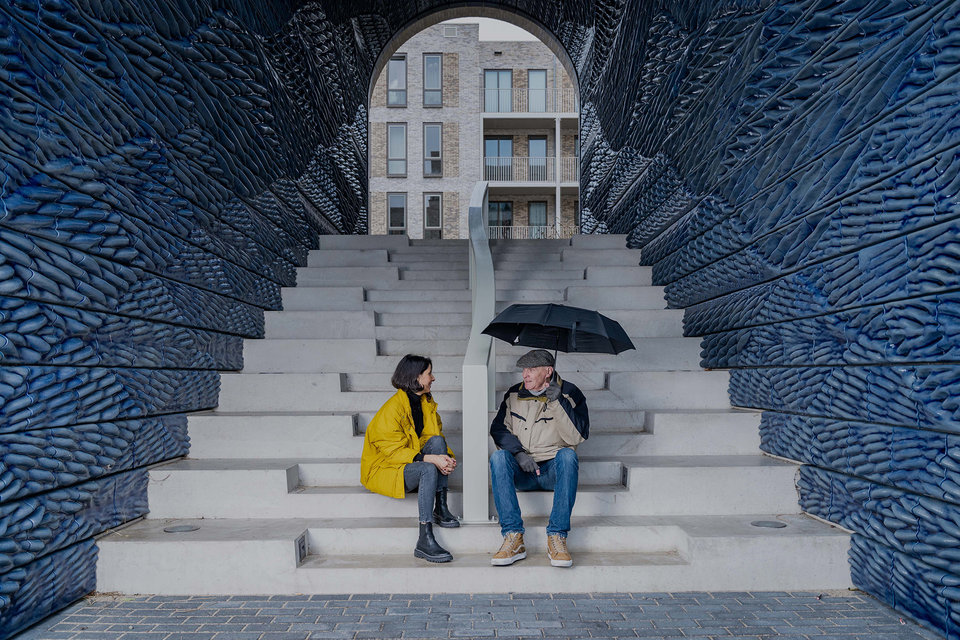All bachelor students are being offered the chance to choose the AI minor in Delft this academic year – the first time this has been possible. The minor takes six months and yields 30 credits, and just as importantly, it prepares students for a digital future. Applied physics student Huib Baetsen says: “AI offers extra possibilities across all courses at TU Delft. You can really get new information and new kinds of results with it."
Tom Viering is coordinator of the AI minor, and also teacher of the machine learning course. He is, as he describes himself, ‘a real AI guy’: “When we were working on our Capstone AI projects at the end of the course, I wished I was a student again.” Viering has been a teacher for a year, and following a PhD in machine learning theory he is now finishing his dissertation. He laughs when he talks about the AI minor’s success: “We couldn’t even accommodate all students in 2021, because there were only 100 spots available during the year. Our intention is therefore to increase the size of the minor every year from now on, attracting more teachers so that more students can participate. Next year there is already room for 125 students; one day we expect that will be expanded to 500 students.” Ultimately, one of the university’s objectives is that all students at TU Delft should come into contact with AI education. Despite the fact that there were still corona lockdowns taking place in 2021 and many work consultations had to be done remotely, the year’s first step towards meeting the objective has proved a great success.
By the end of the project, the students were able to develop very serious AI models, and that really surprised me
Alongside the course ‘Introduction to Machine Learning’, participating students receive the courses ‘Introduction to Python Programming’ and ‘Algorithms and Data Structures’, and the course that focusses on ethics, ‘Introduction to Responsible AI’. It all concludes with a ‘Capstone’ project, in which students work in small groups to design an algorithm that addresses a complex existing social problem. Junzi Sun is a lecturer in Air Traffic Management at the Faculty of Aerospace Engineering. He supervised students taking part in the AI minor. The Capstone question that Sun presented to his students concerned plane delays. He said that he asked them if they could predict delays better with the help of AI: “Flight delays are an important and major problem in air traffic management. And it’s complex, because there are many airports in Europe, and even more planes and flights. I wanted to see if students could make accurate predictions through a machine learning algorithm.” To Sun’s surprise, the students passed in style: “They started with simple models, but I was impressed with their progression. By the end of the project, they were able to develop very serious AI models, and that really surprised me.” Sun was in contact with his fellow students twice a week during the project, and he finally helped them to write a conference paper for the ICRAT 2022 (International Conference on Research in Air Transportation).
New results
The subjects of each Capstone project varied enormously. For example, a chatbot was created for students who were feeling depressed. Viering: “This project was about well-being on campus, using a chatbot that was able to communicate with students. We adjusted the project along the way: the chatbot could eventually answer general questions, although it didn’t provide specific psychological advice because that was risky. But it’s nice to see that you can really combine machine learning with all fields. Every study area has something to offer.”
The range of potential applications was confirmed by student and Capstone participant Huib Baetsen, who pursued a project that applied AI to imaging a specific protein structure. “When I started this minor, I didn’t know how broad its application was. I always thought that physics and AI were far apart, but they are not. All kinds of new possibilities arise when you combine these fields. It’s super interesting to at least learn what the possibilities are when using AI in your field or area of study. You can always consider later whether or not you want to use it. AI offers extra possibilities across all courses at TU Delft. You can get really new information and new kinds of results using AI. That was a big eye-opener for me.”
A versatile technique
Baetsen collaborated with nanobiology students during his own Capstone project on protein structure. This structure is normally assessed using an electron microscope, or with a fluorescence microscope, but Baetsen said it is almost impossible to depict the same exact structure in both ways: “In the first method, the protein structure breaks down because you have to cool it. In the second, it changes because you have to add proteins to it. Our idea was to create an image using one method and employ AI to convert it to the other.”
Baetsen said that whether or not the approach was ‘successful’ is a difficult question to answer: “It was interesting to get a feel for how sensitive these models are, and how many factors are involved. There was literally an endless list of things to tweak. We learned a lot from getting to know the technique’s versatility, but also its limitations. We now know that in principle it is possible to do what we wanted to do, but it would still take a lot of work.” Lecturer Junzi Sun: “We made a distinction in the final projects between ‘must do’, ‘should do’, ‘could do’, and ‘won’t do’. Depending on their own interests and skills, students can make it as simple or as elaborate as they want.”
It is great to see how much enthusiasm and energy is generated when developing this minor. AI education is important for all students in Delft, at all faculties, to be well prepared for a future with complex challenges." –
Geert-Jan Houben, Pro Vice Rector AI, Data & Digitalisation
A serious minor
Sun is one of 26 supervisors. These teachers from all different faculties are given the freedom to set up their projects, according to their own wishes together with their students. Fifteen of the teachers are also involved in the TU Delft AI Labs. The 24 interfaculty TU Delft AI Labs are committed to education, research and innovation in the field of AI, data and digitization. The bridge between research ‘in’ and ‘with’ AI is explored. Viering: “We soon noticed that supervisors had a lot of fun with these projects, and we also received positive feedback from the students in the evaluation.”
Student Tatjana Hertel, a third-year bachelor’s student in mechanical engineering, said that Viering’s teaching subject, ‘Introduction to Machine Learning’, was a favourite for her: “The best part was that we learned the theory in the morning, and could apply it immediately in the afternoon.” Hertel had always wanted to take an AI minor, even before it was available in Delft: “I would almost call AI my hobby. I don’t want to go the whole distance in that direction, but I want to stay informed about AI and what can be done with it. I also think this minor Engineering with AI – next to the minor Computer Science – really helps you in your studies and later on in your career.” Hertel sees a future for herself in the medical field. Her Capstone project used AI to develop a program that allowed a computer to see if someone is walking normally or unusually – so, for example, a physiotherapist can detect abnormalities. Hertel: “It was very difficult to make, haha, but also a lot of fun!”
AI provides insights and opens doors in your research
Ibrahim Hassan also participated in the AI minor. He is an electrical engineering student and believes that AI is the future: “You hear the term AI everywhere these days. That made me curious, and this minor is also a nice addition to my studies. My Capstone project was about energy: how much energy is produced by solar panels and windmills? Because we will be more dependent on these energy sources in the future, it is important to make sure we can also better predict how much energy they will supply. We have created a number of models that accurately determine how much energy is produced. I really think that this minor enriches your knowledge. AI provides insights and opens doors in your research.”
Text: Pauline Bijster
Photography: Adam Klugkist
The AI minor will also be offered in Rotterdam and Leiden from the 2023-2024 academic year. Every university has its own AI minor, with its own theme and learning objectives:
- Engineering with AI (TU Delft - 30 EC);
- AI and Society (Leiden University - 30 EC);
- AI in Society (Erasmus University Rotterdam - 15 EC)

